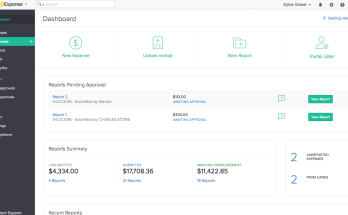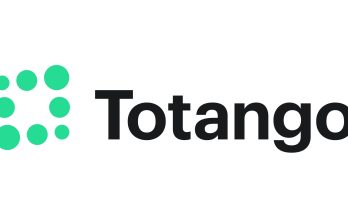Companies should be able to manage client interactions and data via CRM software. It must be capable of automating advertising, sales, and customer support. It should also help you get to company data and keep track of your connections with partners, vendors, and employees. It’s not simple to pick the best CRM software. There are plenty of excellent choices available. Not to mention a slew of positive reviews. That’s why we’ve taken care of everything for you.
We picked the top customer service management tools and systems consideration. Whatever your exact business demands are, this overview of the top 15 top CRM software will undoubtedly contain the proper software and services for any size and type of firm. We analyze prices and recommend the best free CRM software. However, if you don’t know where to begin, selecting the best CRM Software for your organization might be difficult.
Top 15 CRM Software for Your Business in 2022
As a result, we’ve compiled a list of the finest CRM software to assist you in deciding which platform is right for you. Our staff has extensively tested and studied each instrument. We’ll go over all of the important CRM Software features and benefits of each system to give you a clear picture of the best ones, based on your budget and needs. If your firm depends too heavily on spreadsheets or has many to keep track of, you may need a more sophisticated solution, such as customer relationship management CRM Software.
This type of software merges data that would otherwise be segregated into various spreadsheets, allowing you to start and develop client relationships on firm ground. This will be extremely useful in the next few years, as CRM Software trends indicate that all client channels will be consolidated into one. Furthermore, mobile CRM Software is gaining in popularity and use since it has been demonstrated to help organizations meet their quotas. Regrettably, not all CRM software is created equal.
This is why it’s important to consider your alternatives and choose which one best meets your company’s operating needs. When making this list of the top 15 CRM software, we tried to be as thorough as possible. All CRM software has been included that can handle multiple data sources, connect to third-party apps for flexibility, and work as a central hub for all your brand image and customer relations. We also listed prices where we could find them, as well as those that offer a free trial or, even better, a completely free plan.
1. Salesforce CRM
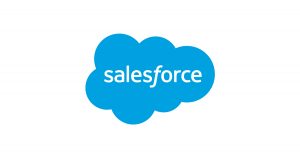
Salesforce CRM Software stands for customer relationship management. Salesforce was made for you if your sales operations are growing at an enterprise level or if you expect them to grow to that level. Salesforce is a customer relationship management tool that can be used to handle leads, engage prospects, collaborate with your customer service team, track sales, run and track marketing campaigns, and measure performance metrics for huge teams. Salesforce integrates deeply with the technologies you already use across your stack, allowing you to manage sales actions outside of Salesforce while maintaining a single source of truth.
Key features
- A complete corporate CRM that includes almost everything you’ll need to manage a growing sales team.
- Salesforce easily interacts with hundreds of SaaS services, allowing you to link your data and trigger activities across all of the programs you already use.
- Automated approvals and processes: Sales teams can use Salesforce to make complicated workflows that can do certain things when certain conditions are met.
- Use Salesforce’s drag-and-drop modules or code in CSS, HTML, and other languages to make as many changes as you want.
2. Microsoft Dynamics 365
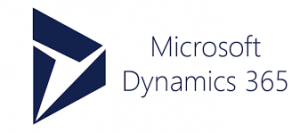
Dynamics 365 strikes a compromise between functionality and usability: it’s robust enough for enterprise sales organizations with hundreds of SDRs, yet simple enough for SDRs with only a rudimentary understanding of corporate sales to get started. Dynamics offers a full-stack customer relationship management solution that combines features like sales process automation, account payable and receivables administration, sales analytics monitoring, content management, and compliance into a single sales experience for growing teams.
Key features
- It integrates with your current stack: consider Gmail, Hubspot, Mailchimp, and Zapier—pretty much all of the big platforms you’re already using.
- There are tools for managing accounts payable and receivable, budgeting and forecasting, billing and invoicing, and more.
- available on a variety of platforms, including the web, iOS, and Android.
3. SAP CRM
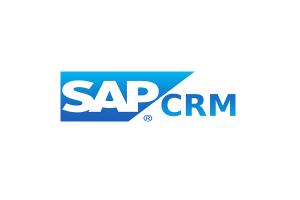
It may take some guidance to get your team started, but once you’re up and running, you’ll see how it may help you manage campaigns, engage prospects, track performance metrics, and collaborate with your team throughout the sales process. SAP’s customer success capabilities enable organizations to connect with clients beyond the sales cycle by managing support problems, inquiries, and purchases and interacting more effectively with customers throughout their sales lifetime.
Key features
- An all-in-one tool for keeping track of contacts, deals, and current clients.
- Use advanced dashboards and analytics to keep track of data points.
- With good case management and a knowledge base that can be used for many things, you can attract and keep customers.
- Integrations with the rest of your IT stack are extensive.
4. Oracle CRM on Demand
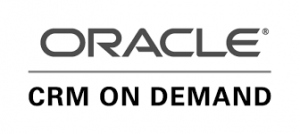
Oracle CRM on Demand gives you a single place to manage both incoming and outgoing sales, so you don’t have to use any other apps. CRMoD was made to help corporate sales teams manage their processes smoothly from lead to order and opportunity to quote. CRMoD gives sales teams the freedom to interact with a large number of variables and data points. This lets them easily capture new leads, track transactions, improve lead scoring, and manage a sales territory. While the user interface of Oracle CRM on Demand leaves a lot to be desired, it has everything you need to manage an enterprise sales organization beneath the hood.
Key features
- Easily manage leads and client accounts.
- Create, assign, and monitor tasks across your team using task management.
- Use strong email marketing tools to engage prospects.
- Case management, support analytics, and knowledge bases have all improved customer service.
- Dashboards for reporting and analytics
5. Hubspot Sales Hub
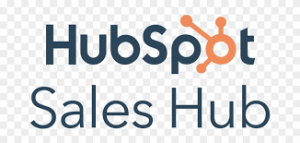
HubSpot’s user-friendly interface CRM is made for teams of any size that want to do more transactions, integrate marketing more deeply, improve relationships with customers, and keep them by giving them great customer success. To begin with, Hubspot is simple to use. Yes, you must set up some variables yourself, but HubSpot provides a failsafe customer relationship suite that sales teams can use right now without having to retrain the entire workforce. Hubspot offers smart contact management, sophisticated workflows, analytics, and marketing automation to keep your prospects interested throughout the sales process.
Key features
- Dashboards that are simple and straightforward to use
- Keeping track of prospect activity is a good way to stay on top of things.
- email marketing that uses strong processes to engage prospects on a large scale.
- Tools for lead management that make qualifying, scoring, and engaging leads easier.
- Performance management reports that can be customized
6. Freshworks CRM
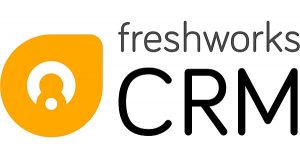
Freshworks appears to be a simple CRM designed for small businesses. Freshworks achieves this by balancing utility with simplicity. Freshworks has a lot of capabilities for corporate sales teams, but it’s also simple enough for individual SDRs to figure out. Freshworks is quick, easy, and has a short onboarding process, which is a significant plus if you have a large sales force that wants to switch to Freshworks. There are also tools for managing your team, rich reports that show your data, and customer service that is lightning fast.
Key features
- From a single source of truth, manage contacts and accounts.
- Nurture leads and follows their progress through the phases of your lifecycle.
- Mobile support that allows you to carry your sales HQ with you—ideal for field sales.
- Score leads and rank prospects based on their likelihood of closing.
- With AI, you can forecast income.
- Contacts may be contacted by chat, email, phone, SMS, and Whatsapp.
7. Pipedrive
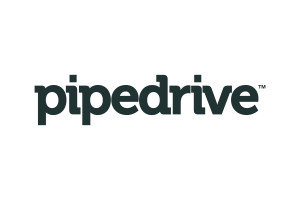
Pipedrive is a simple-to-use CRM Software that’s meant to assist increase sales teams to manage interactions and conversions without adding too many complicated features. It’s made so that you can get leads from your website, give deals to team members, manage contacts as they move through the sales funnel, make custom workflows, and connect them to the rest of your tools. Since data import is built-in, you can switch CRMs without having to spend weeks manually moving data or getting your staff up to speed.
Key features
- Integrations with third-party operations and financial software like Google Workspace, Xero, Mailchimp, and Zapier
- The user interface is simple and straightforward, making it exceedingly simple to use.
- The Web, Android, and iOS are all supported.
- Analyze data using easy-to-understand dashboards.
8. Zoho CRM
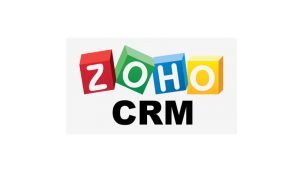
Zoho CRM bills itself as an enterprise sales team’s operating system. It has a long list of capabilities that go beyond typical customer relationship management, including no-code solutions, API compatibility, and a third-party marketplace where you may look for interfaces with your existing products. With fast account administration, performance tracking, and multi-channel support, Zoho CRM Software is built to boost business sales. When you put all of this together, Zoho CRM Software can help you manage a growing sales team and convert and keep clients after the sale.
Key features
- Using sophisticated procedures, they create detailed customer journeys.
- Engage prospects with email, social media, and text messages.
- Make sure your revenue projections are correct.
- Use interactive charts, widgets, and pivot tables to visualize complicated data points.
- Slack, Microsoft Teams, Google Calendar, and the rest of your sales stack integrations.
9. Sugar Sell
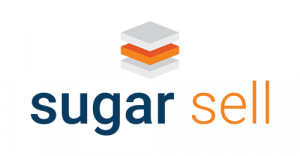
Sugar Sell (formerly SugarCRM) is marketing automation and customer relationship management platform that lets businesses build customer journeys using workflows, nurture leads down the funnel, and give customers a great experience once they’ve been converted. Sugar Sell’s multi-channel marketing solution enables sales professionals to engage prospects with tailored messages through email and SMS, automate activities with Sugar Sell workflows, and measure success at every stage of the sales process.
Key features
- Improved lead scoring can help you target leads who are most likely to convert.
- Automated processes may help you map out the customer experience, track sales, and improve productivity.
- With an omnichannel customer support platform, you can promptly resolve client concerns.
- Sugar may be installed on hardware and customized in-house.
- Sell to satisfy your evolving internal requirements.
- Integrations with a variety of SaaS applications are available.
10. Netsuite
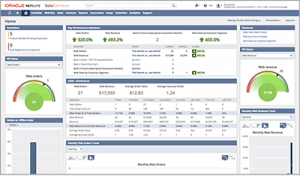
Netsuite’s customer relationship management software gives corporate sales teams 360-degree visibility into the customer lifecycle, allowing them to tailor each prospect’s experience. With Netsuite’s customized dashboards, reports, and key performance indicators (KPIs), sales teams can look at their success on a large scale. In essence, Netsuite puts the whole sales cycle on a single platform so that corporate sales teams can manage the client lifecycle from prospect to fulfillment and support.
Key features
- Workflows may be customized to create unique customer journeys.
- Support for several channels, including mobile and online
- Use real-time analytics and role-based dashboards to create your reports.
- Case management techniques and online knowledge bases help you address client concerns effectively.
11. Infor CRM
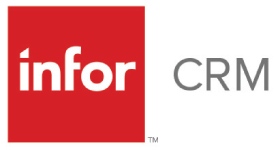
Sales, customer care, marketing analytics, and reporting are all covered by Infor CRM’s corporate sales solution. Infor provides expanding corporate sales teams with a deep dive into all of their sales and marketing data, which they can use to make revenue-generating choices. Infor accomplishes this by combining sales productivity modules with in-depth reporting, analytics, and customer monitoring to track client behavior and tailor your sales experience to fit their needs.
Key features
- Organize SDRs and divide the area amongst sales teams.
- Internal and external data sources can be used to enrich client profiles.
- Connect your sales, productivity, and marketing stacks together.
- Customize workflows to automate manual operations.
12. Zendesk Sell
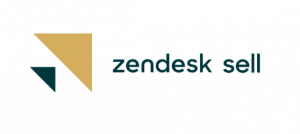
Zendesk Sell (previously Base CRM Software) is Zendesk’s take on customer relationship management, and it’s likely part of a larger push to integrate Zendesk’s product suite into unified marketing, sales, and customer support suite for expanding teams. Zendesk Sell has a deal pipeline, customized email marketing, and a digital phone system for sales conversations. You can access Sell through iOS and Android mobile apps from anywhere, so you can take your pipeline with you. This is a huge selling advantage, especially for offline or spread teams that may be working from home since the new normal was set.
Key features
- Integrate with the Zendesk Marketplace’s 1,000+ applications or modify them to fit your internal tools.
- Create as many custom fields as you want for each contact.
- For phone salesmen, click-to-dial, call recording, and a power dialer are available.
- Call statistics; detailed activity reports; and projections
- Inside Zendesk Sell, you can create, track, and share your product catalog with prospects.
13. ActiveCampaign

Most commercial CRMs charge per SDR based on the number of contacts in your funnel, while ActiveCampaign charges a flat rate that is far less expensive. ActiveCampaign delivers a plethora of capabilities that are difficult to match at that price range, especially for increasing sales teams.
Key features
- Marketing automation that can be customized for email, SMS, and social media.
- Lead scoring is a method of determining how likely a lead is to be converted.
- Tracking of the website and events
- Hundreds of pre-built apps and customer engagement platforms are integrated.
- Customer analytics and custom reports
14. LeadSquared
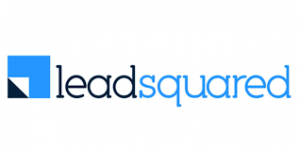
Leadsquared claims to boost sales velocity and assist enterprise sales teams in moving opportunities through the pipeline faster without allowing deals to slip through the cracks or requiring hours of human follow-up each day. This is made feasible by features like configurable processes, structured sales, team-wide workday planning, and simpler communication, which allow SDRs to exchange insights, reassign opportunities, and focus on completing new transactions.
Key features
- With no-code sales process builders, you can create custom processes.
- Hundreds of data points and characteristics to pick from in custom dashboards.
- Take your CRM Software with you on the go with mobile assistance.
- Native connections, powerful APIs, and Leadsquared’s development platform are all available.
- Task assignment with conditions: allocate leads to the best agent based on predetermined parameters.
15. Oracle Siebel
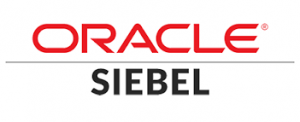
Oracle Siebel is an on-premise customer relationship management system for industries that want to keep their data on-site. These industries include pharmaceuticals, energy, life sciences, and manufacturing. Even though it costs a lot, Oracle Siebel is a more traditional CRM Software with a lot of features for on-premise users.
Key features
- Larger businesses need to manage their accounts, opportunities, and territories.
- Reporting and forecasting:
- through the quote-to-cash process, and efficient order management with quotations and offers.
- For a multi-channel customer relationship management experience, integrate with Oracle Sales Cloud.

